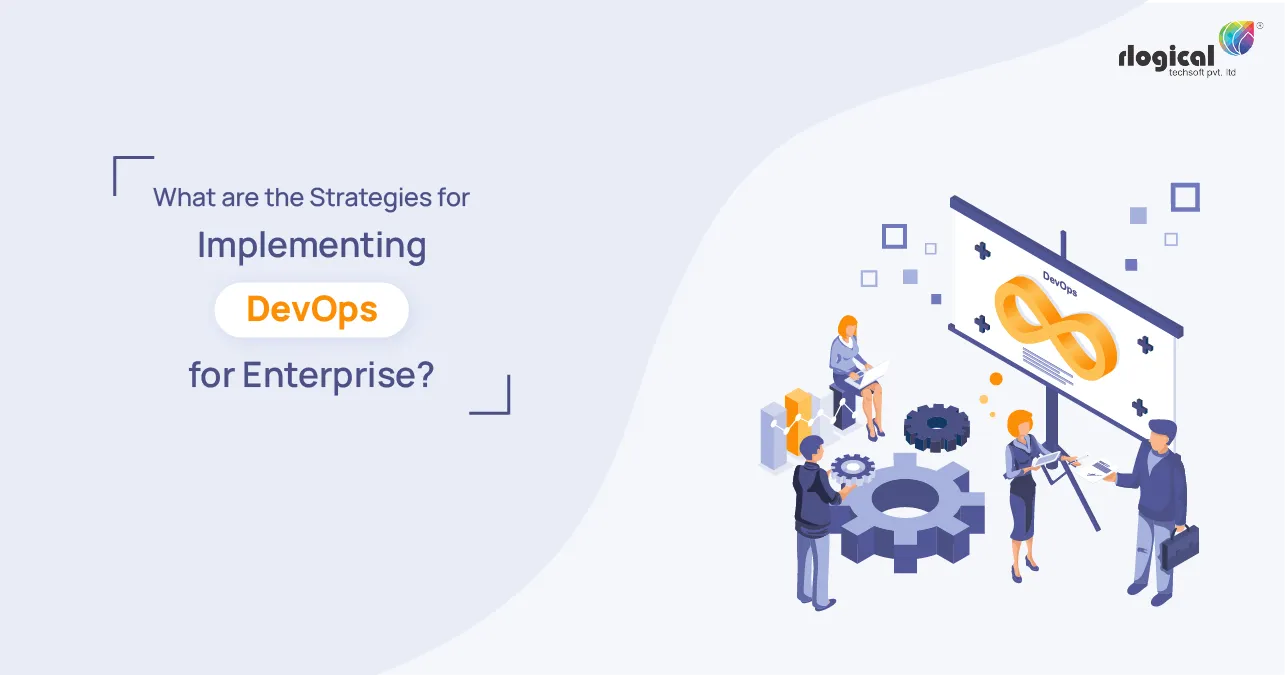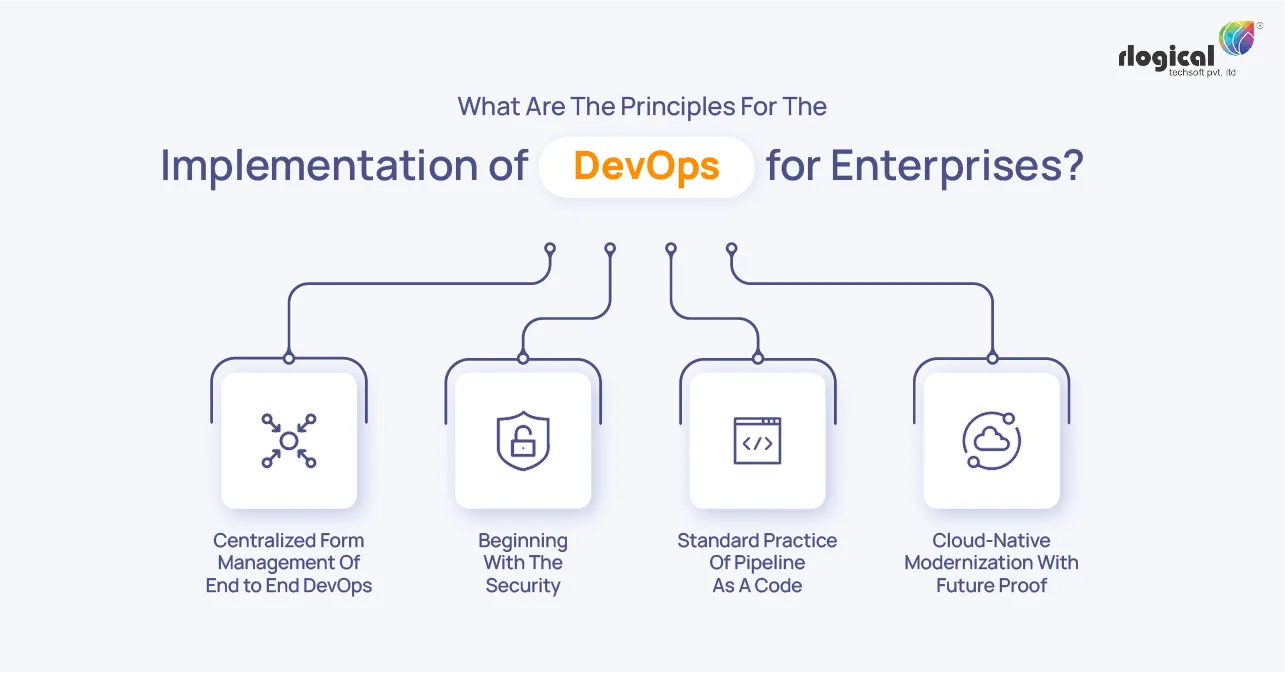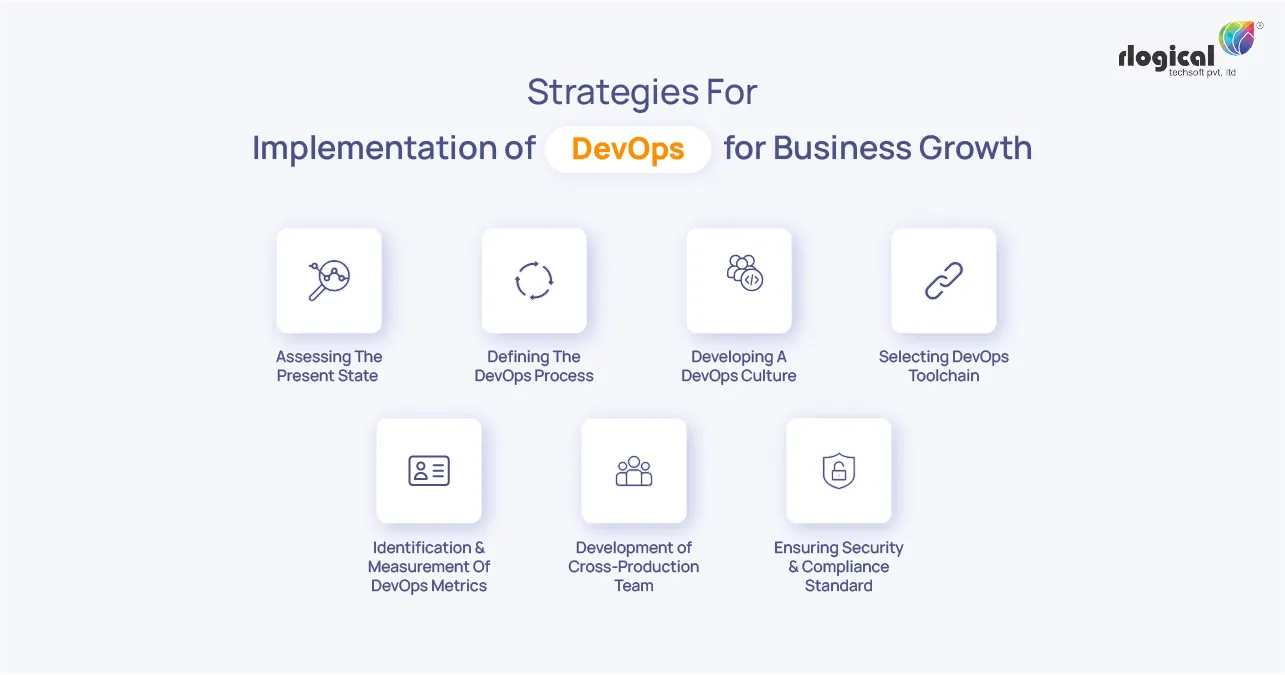
Enterprises need to adopt new and innovative technologies to propel their business growth in the digitally advanced world. The competition among the business players is driving at the global level. To make your place in the top position, businesses need to adopt the technologies to keep proceeding in the business.
In the present market scenario, if you want to set your position, advanced technological development and enhancement will help you sustain yourself in the market. This will also help you to generate higher sales and revenue.
Software development in the enterprises will drive the organization’s value. Therefore, DevOps will help enterprises deliver significant value. The mobile app development company will help the organization implement DevOps.
An Overview Of DevOps for Enterprises
According to statistical research, 83 % of IT decision-makers are considering the implementation of DevOps to deliver higher business value in 2021. 58 % of business enterprises have noticed high business performance and enhancement of ROI in the year 2021. Based on these stats, IDC has predicted that the DevOps market will reach approximately USD 2.9 Billion in 2022.
It has been proven that the implementation of DevOps fairly drives business growth and propels business performance. Therefore, it has been noticed that it is highly adopted in enterprises.
DevOps is an advanced approach of technology that combines both software development and IT operations and further shortens the systems development life cycle, and proceeds delivery with higher software quality.
This helps transform the software processing and generates value for the customers and workforce. Therefore, with its help, the productivity gets enhanced, and the operation becomes streamlined.
Some of the top listed DevOps tools are Selenium, Maven, Git, Jenkins, Terraform, Docker, Kubernetes, Ansible, and Nagios. To get more ideas about the DevOps tools, you can seek the provider of custom web development services.
What Are The Principles For The Implementation Of DevOps for Enterprises?
There are some principles to follow for implementing DevOps, which will benefit business growth. The principles can be explained by the mobile app development company and the implementation. Let’s discuss the principles in detail.

1. Centralized Form Management Of End to End DevOps
A centralized management system is chiefly necessary for the implementation of DevOps. The organization must ensure a centralized system for management. It will manage the enterprise’s DevOps network where the deployment and development team can operate and function like teams as centrally managed ones.
The whole technological model will now work as a single-origin source for the complete software development life cycle which consists of CI/CD pipelines, security, container images, deployment, compliance, and others.
This will further enhance and ensure visibility for necessary development and operational teams. The custom web development services will have great knowledge in forming a centralized management system.
2. Beginning With The Security
The other important principle to make DevOps focus on security from the initial software development cycle. The function of DevOps is to keep the prime focus on security issues and other compliance-related issues in the enterprises. To offer rapid development and delivery, the enterprises’ custom web development services use third-party tools, plugins, and libraries, which is a threat to the software in terms of security.
Even during the usage of microservices for DevOps, security becomes challenging. In organizations, developers access the application through cloud-based technology when the web application is cloud-ready. But it is necessary to ensure maximum security. The continuous maintenance with automated scanning of the database will ensure higher security. Deep scanning of container images and dependencies and the implementation of universal security maximizes security.
3. Cloud-Native Modernization With Future Proof
Proven cloud-native environments are required when you want to modernize your web application development process. In the present generation, rapid application release is the major strategy to stay ahead of the competition with an advantage and cloud-native applications.
This will provide your enterprise with effortless infrastructure management. Additionally, you will be able to manage storage, networking, and cloud provision.
4. Standard Practice Of Pipeline As A Code
Pipeline as a Code defines the deployment pipelines based on a secured source code. This can be beneficial in productivity and scaling when the delivery pipelines are specified in the form of a codebase in enterprise DevOps.
To achieve this, you should store data from the pipelines within a source code. This will make the data reusable, shareable, and auditable. This standard practice will further eliminate the workload pressure on developers. It becomes capable of automating and standardizing the software development process.
Strategies For Implementation Of DevOps For Business Growth
As there are a set of principles to follow for implementing DevOps, some major strategies help in business growth. When planning a DevOps strategy for the enterprises, you need to achieve significant parameters such as collaboration, reliability, scalability, rapid delivery, and security. Consulting a mobile app development company will be beneficial. The following strategic steps will help you to successfully implement DevOps.

1. Assessing The Present State
DevOps’s real-time implementation will be challenging because it is difficult to replace existing methods with new methods. Therefore, careful analysis of the organization’s pre-DevOps situation is necessary. Then, the application’s solution patterns should be understood which you want to build.
2. Defining The DevOps Process
DevOps should be processed from the initial stage, and the improvement of infrastructure provision can be made with a proper development cycle and testing.
CI/CD (Continuous Integration and Continuous Development)- Continuous integration is considered the primary DevOps practice through which the developers can merge the changes in back code to the central repository. The continuous delivery takes the responsibility from which point the integration ends.
This automates the application delivery to the infrastructure surrounding, such as testing and development. The CI and CD practice also enables the organization to meet consumers’ needs and further ensure the application quality updates.
Microservice is an advanced and innovative trend in the software field and is made for DevOps. Through this service, small deployable services perform business logic around complex applications. This helps the operational and delivery teams to tackle the individual services, and it also simplifies the process of development, deployment, and testing.
Container Management System utilizes containers to package, isolate, and deploy microservices. With the help of the containers, the application’s source code is packaged along with the libraries, files, and dependencies in a single body. Multiple containers can deploy more extended applications.
3. Developing A DevOps Culture
Developing a DevOps culture will enhance many relevant factors in software development. It will increase collaboration, communication, and transparency. It functions between the operation and development teams. The DevOps culture will help the team to maintain peace.
The two major things to remember are expectations with clarity and a psychological safety environment. These two major factors can develop a DevOps culture in the organization that will align the processes to a unified and defined customer focus.
4. Selecting DevOps Toolchain
Choose the right tools based on the trends and innovations to allow the organization to have properly customized workflows. It will also ensure the establishment of good infrastructure and can access controls to result in smooth functioning.
For such integration, you need to select the appropriate tools based on the compatibility with the IT environment and infrastructure, requirements, and tech stack, along with the desired choice of the cloud provider. For Configuration management, the DevOps tools are Puppet, Ansible, Salt, and Chef. A DevOps strategy is beneficial for eCommerce companies, too.
5. Identification And Measurement Of DevOps Metrics
The major goal for implementing DevOps is quality assurance, velocity, and performance of the application. The developmental teams have to collect and further analyze and measure the metrics based on the business goals and KPIs for improvement. The DevOps metrics will provide important data essential for better visibility and control of the software development pipeline.
The chief metric the DevOps team should measure is the deployment metric, known as the core metric for an insight into the DevOps practices and their effectiveness. The Lead Time to Changes metric presents the organization’s responsiveness towards the user’s demand and needs based on the organization’s objectives.
The Mean Time to Recovery metric measures recovery time after a production failure. Other major metrics to measure are financial, including software development costs, process introduction cost, etc.; customer perspective metrics, internal procedure, and innovation perspective.
6. Development of Cross-Production Team
Creating a skilled cross-production team will help optimize the product delivery process and value it through the product’s lifecycle. Therefore, the DevOps team must have professionally trained and skilled members who have core knowledge in software engineering and operations.
The team should be composed of experts who are excellent at writing and analyzing codes and other members in managing infrastructure. This will further make a perfect cross-production team.
7. Ensuring Security And Compliance Standard
The enhancement of DevOps security is a major strategy for the disciplined implementation of DevOps. This practice will protect the complete DevOps environment based on policies, processes, technology, and strategies. The organizations should embed security throughout the entire DevOps lifecycle, including design, build, inception, test, release, maintenance, etc. The DevOps security type is known as DevSecOps.
Conclusion
Implementing a successful DevOps strategy within an enterprise requires a meticulous roadmap that encompasses cultural transformation, technical integration, and continuous improvement. By fostering collaboration between development and operations teams, leveraging automation tools, and prioritizing security within the DevOps pipeline, organizations can significantly enhance their software delivery processes.
Engaging DevOps consulting services can provide expert guidance and tailored solutions to navigate the complexities of this transformation, ensuring a smooth transition and maximizing the benefits of adopting DevOps methodologies. Embracing DevOps is not just a trend; it’s a strategic initiative that can empower enterprises to thrive in a rapidly evolving digital landscape.
Enterprises and organizations should know the implementation of DevOps for successful business growth. The above principles and key strategies will be beneficial for DevOps Implementation.
Rahul Panchal
Rahul Panchal is the Founder & Managing Director at Rlogical Techsoft Pvt. Ltd. He is a pioneer tech enthusiast who has assisted diverse enterprise solutions with a fresh perspective over the years. From integrating technologies like Full-Stack, .NET, Flutter & PHP, he has harnessed custom web or hybrid mobile app development projects. His creative outlook on the latest models of AI, ML, blockchain, and IoT, has made various businesses attain leading-edge success.
Related Blog
Categories
- All
- AI Development Services
- Amazon Web Services (AWS)
- ASP.Net Development
- Azure Web App
- Big Data Analytic
- Customize
- Digital Marketing
- Drupal Development
- E-commerce web development
- Education Mobile App Development
- Enterprise Application
- Event Management App Development
- Fintech
- Fitness App Development
- Food Delievery
- Front-End Development
- Healthcare App Development
- Hire Dedicated Developers
- Hotel Booking App
- IT Industry
- JavaScript Development
- Mobile App Development
- On Demand App Development
- On Demand Healthcare App Development
- PHP Development
- POS Software Development
- Real Estate Mobile App Development
- Retail Business App Development
- Salesforce
- Social Media Development
- Software Development
- Technology
- Transportation App Development
- UI/UX Design
- Web Design
- Web Development
- Web Services
- Web/Data Scraping Services
- WordPress




 Rahul Panchal in DevOps Engineer
Rahul Panchal in DevOps Engineer 





